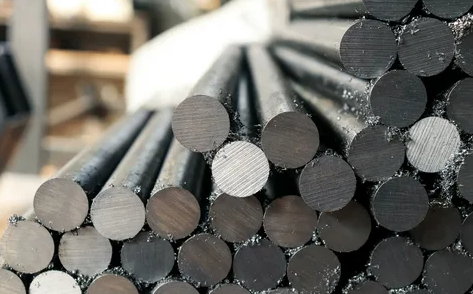Photo by Alexander Chekmenev for FORBES UKRAINE, 2021
Fast forward: September 2021. Metinvest is still the largest company in the country. Assets in the occupied territories have been lost, but Rinat Akhmetov's holding retains an appetite for risk and has impressive resources for expansion. Ryzhenkov is no longer a novice leader, but one of the best CEOs in the country. What has he learned in eight years, and what can he teach others? Forbes organized a conversation between Ryzhenkov and a veteran of Ukrainian corporate business Alexei Timofeev, who until 2015 was the general director of Smart Holding Vadim Novinsky, and is now a co-founder of the investment company Trident Acquisitions Corp. Forbes compiled a list of the largest private companies in Ukraine for the first time in 2011. Metinvest is in the first place both then and now. How has the company changed in 10 years? In 2006, Metinvest merged very diverse enterprises. The main task was to make their employees feel like a part of a big company. The first stage of transformation is always the slowest. By 2011, this task had not yet been solved. The fragmentation was felt very strongly, each company looked only at itself. The path that we have traveled since then has taught every company of the group, without exception, that they depend on each other and work for a common result. It is not a trivial task to consolidate different cultures, different assets. What were the main levers? Crises. They always teach, although good times also give impetus to development ... Provide resources for development, but do not provide incentives. The largest crisis in the history of Metinvest was in 2013-2015. I would not call it political, but rather geopolitical. He taught us to value mutual assistance. Work together, but make decisions autonomously. From 2006 to 2013, the company moved towards centralization - the development of a unified policy in many areas. During the crisis, a lot of decisions were delegated to the localities, because it was unrealistic to make them centrally, we would simply be late all the time. And practically all of our enterprises, having received autonomy, did a good job. Metinvest ecosystem Autonomy in which areas? Security, sales, purchases? Sales are completely centralized. One enterprise of the holding should not cannibalize others. Procurement is now more centralized than it used to be. If you do not take strategic raw materials and materials, Metinvest Business Service makes the lion's share of purchases for all enterprises of the group through the electronic platform Ariba. This is an analogue of ProZorro. Vendors often complain that big companies squeeze all the juice out of them. You have to give the lowest price, and the customer is not interested in whether you survive or not. On the one hand, this is an incentive for development, on the other hand, many go beyond reason when they can no longer invest. Are suppliers for you a resource or partners? I would divide the answer into two parts. There are supplies of raw materials and supplies in a competitive market. For example, when purchasing bolts, we look not at the lowest price, but at the lowest total cost of ownership, because in addition to price there is durability, deferred payment, guarantees, and so on. This is called best value for money, that is, the best value for money. And competition to the last drop of blood. This is normal in certain segments. And there are segments where you can kill the supplier and make yourself worse. Contract work is just the second part. Like other large companies, we faced contractor abuse - postscripts, envelope salaries, lack of proper tools. The first instinct of a large company is this: since it is impossible to force them to provide adequate service, we will crush them. Many people in Ukraine have chosen this path. And not only in Ukraine. In Russia, large energy and metallurgical companies have killed their contractors. We decided to set such a framework so that the price for contractors was not the only criterion. Each contractor is prequalified. We determine the level of small-scale mechanization, labor protection, engineering control, and so on, and assign certain points. Price becomes one of a whole list of criteria, sometimes not the most important one. When we select key contractors in






